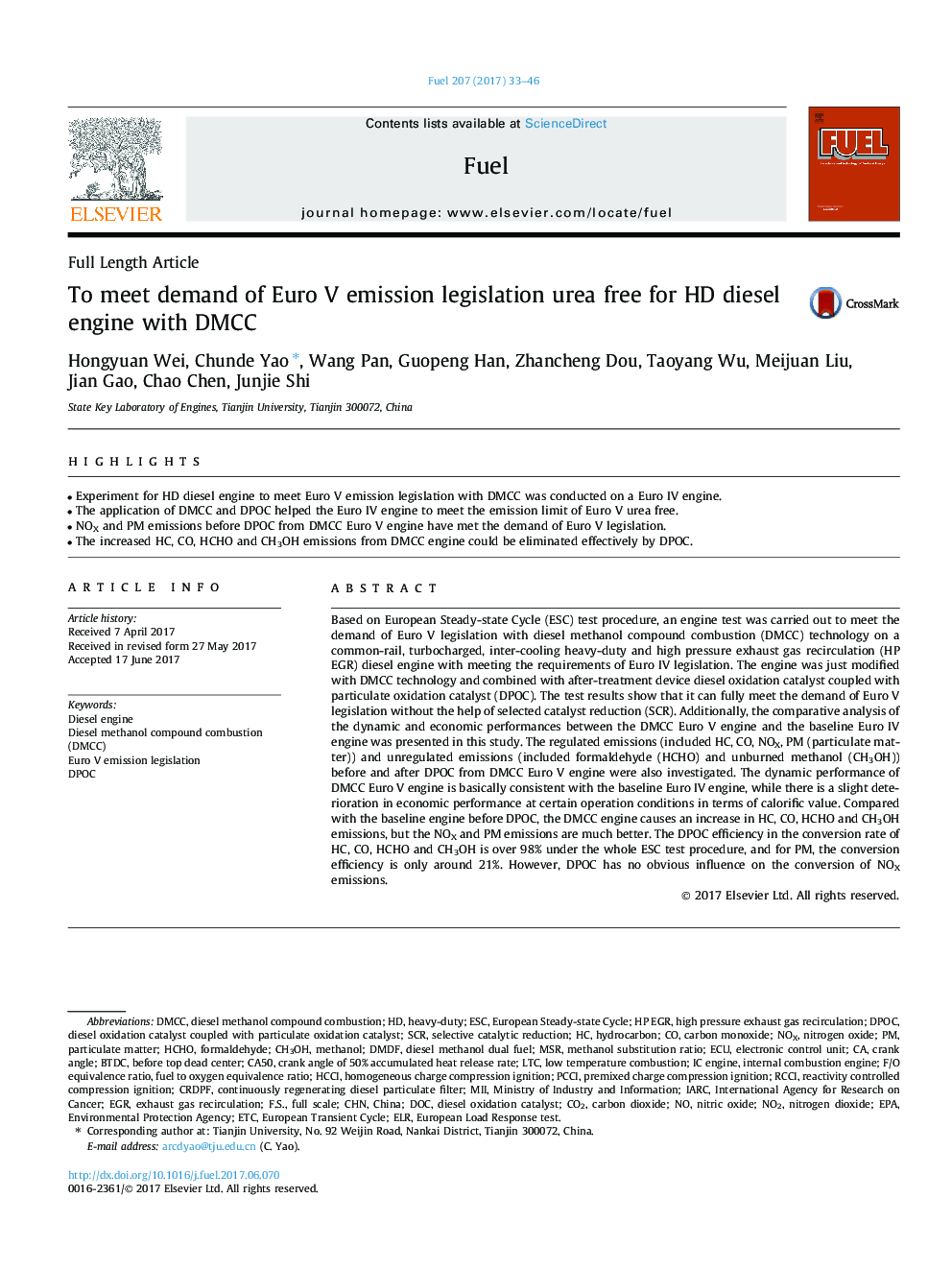| Article ID | Journal | Published Year | Pages | File Type |
|---|---|---|---|---|
| 4768459 | Fuel | 2017 | 14 Pages |
Abstract
Based on European Steady-state Cycle (ESC) test procedure, an engine test was carried out to meet the demand of Euro V legislation with diesel methanol compound combustion (DMCC) technology on a common-rail, turbocharged, inter-cooling heavy-duty and high pressure exhaust gas recirculation (HP EGR) diesel engine with meeting the requirements of Euro IV legislation. The engine was just modified with DMCC technology and combined with after-treatment device diesel oxidation catalyst coupled with particulate oxidation catalyst (DPOC). The test results show that it can fully meet the demand of Euro V legislation without the help of selected catalyst reduction (SCR). Additionally, the comparative analysis of the dynamic and economic performances between the DMCC Euro V engine and the baseline Euro IV engine was presented in this study. The regulated emissions (included HC, CO, NOX, PM (particulate matter)) and unregulated emissions (included formaldehyde (HCHO) and unburned methanol (CH3OH)) before and after DPOC from DMCC Euro V engine were also investigated. The dynamic performance of DMCC Euro V engine is basically consistent with the baseline Euro IV engine, while there is a slight deterioration in economic performance at certain operation conditions in terms of calorific value. Compared with the baseline engine before DPOC, the DMCC engine causes an increase in HC, CO, HCHO and CH3OH emissions, but the NOX and PM emissions are much better. The DPOC efficiency in the conversion rate of HC, CO, HCHO and CH3OH is over 98% under the whole ESC test procedure, and for PM, the conversion efficiency is only around 21%. However, DPOC has no obvious influence on the conversion of NOX emissions.
Keywords
MSRdiesel methanol compound combustionDPOCELRCHNCA50ECUPCCIRCCIDOCLTCEPADMCCHCHOCH3OHDMDFHCCIEGRbTDCNOxReactivity controlled compression ignitionInternational Agency for Research on CancerIARC یا International Agency for Research on CancerEnvironmental Protection AgencyLow temperature combustionnitrogen oxidepremixed charge compression ignitionESCdiesel methanol dual fuelCarbon dioxideparticulate matterCrank AngleHomogeneous Charge Compression IgnitionFormaldehydebefore top dead centerMethanolFull scalecarbon monoxideIC engineDiesel engineinternal combustion engineNO2Nitrogen dioxideNitric oxideMIIhydrocarbonETcelectronic control unitHeavy-dutydiesel oxidation catalystSelective catalytic reductionCO2Chinaexhaust gas recirculationSCR
Related Topics
Physical Sciences and Engineering
Chemical Engineering
Chemical Engineering (General)
Authors
Hongyuan Wei, Chunde Yao, Wang Pan, Guopeng Han, Zhancheng Dou, Taoyang Wu, Meijuan Liu, Jian Gao, Chao Chen, Junjie Shi,
